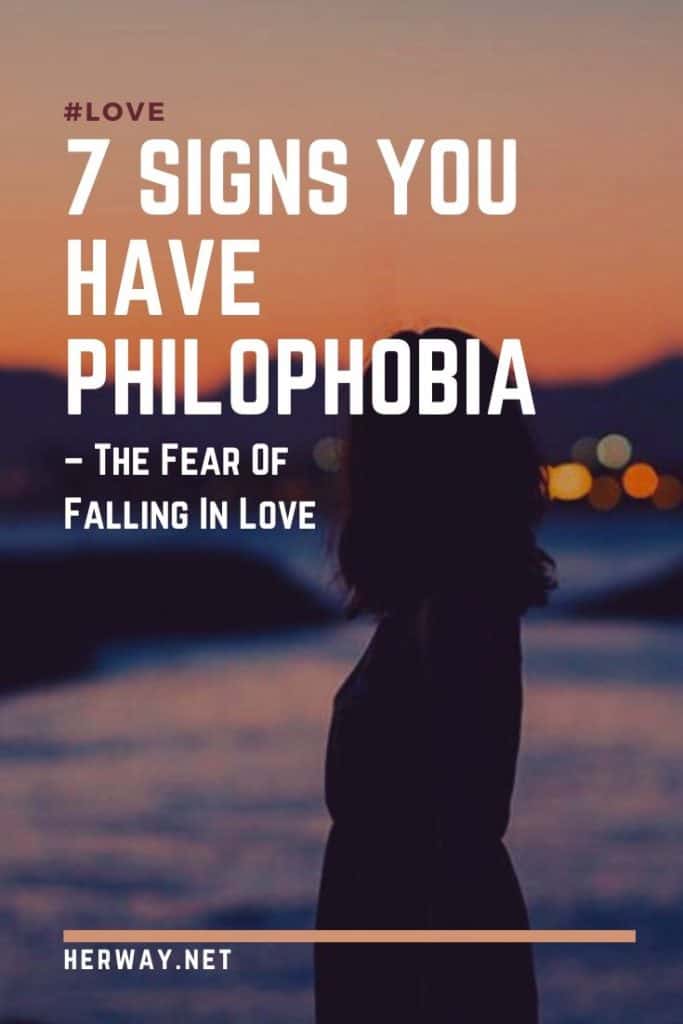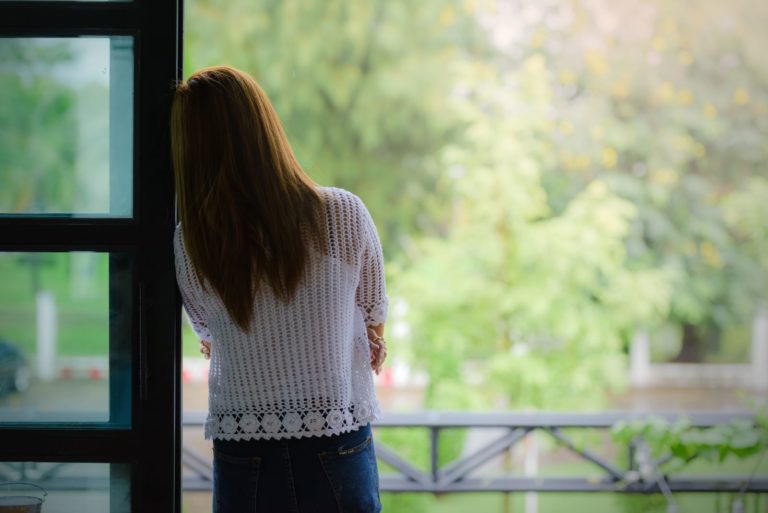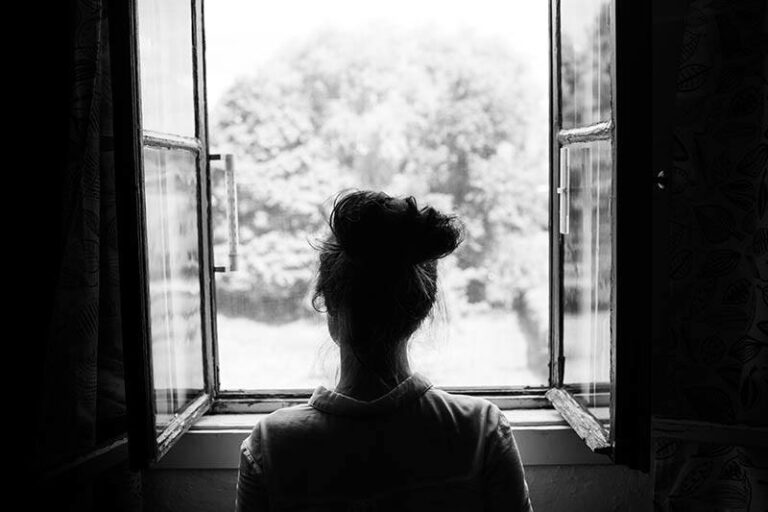7 Signs You Have Philophobia – The Fear Of Falling In Love
What is philophobia? What are the causes and the symptoms of this unpleasant phobia and what can you do to overcome it?
The name philophobia comes from the Greek word ‘philos’ (meaning love) and ‘phobos’ (meaning fear).
One of the most famous individuals of history with this mental health condition was Queen Elizabeth I of England.
People believe that the cause of Queen Elizabeth‘s philophobia was due to seeing her mother, Anne Boleyn, executed by her father, King Henry VIII because of love.
Later on, even though the Queen did have a couple of serious relationships, she avoided embarking on the sea of matrimony at any cost.
Very interesting, indeed. Okay, enough history! Now is the time to focus on the present and yourself! Let’s dig into the philophobia definition and find out what causes this very unpleasant mental health condition.
What Is Philophobia?
 As you might have already concluded from its root words, the definition of philophobia would be the fear of love (or the fear of falling in love).
As you might have already concluded from its root words, the definition of philophobia would be the fear of love (or the fear of falling in love).
It is a specific phobia in which a person fears developing any kind of emotional attachment to other people.
Before we dive deeper into ”fear of love” matters, consider answering the following questions first:
Does the idea of falling in love terrify you to the point where you feel like you are about to have a panic attack just by thinking about giving your heart away to someone?
Does the idea of a committed, romantic relationship make you feel trapped or stuck?
Do you run away from any emotions toward the opposite sex, and you can’t imagine yourself sharing your life with another person?
Do you feel uneasy and uncomfortable when surrounded by couples in parks or movie theaters?
If some of these questions sound familiar, the chances are that you are really suffering from the unreasonable fear of love.
But, don’t jump to conclusions just yet because there will be more signs below that will tell you for sure!
What Causes Philophobia?
 The causes of philophobia vary from person to person, and sometimes it is almost impossible to decipher why it might have occurred in the first place.
The causes of philophobia vary from person to person, and sometimes it is almost impossible to decipher why it might have occurred in the first place.
People who have gone through their parents’ divorce, any kind of domestic violence or mistreatment at home as a child have huge predispositions to developing this phobia later in their adult lives.
Causes of philophobia are directly linked with past or present experiences which consequently form the mindset of an individual.
So, if you witness a relationship in which a couple is going through hard times and eventually breaks up, chances are that you will develop a fear of falling in love.
Also, if you happen to suffer from an anxiety disorder, you may also suffer from the fear of falling in love, aka philophobia, due to lowered levels of self-esteem.
Anxious and insecure persons may think that they don’t deserve love and that no one will ever love them which creates a negative mindset and the basis for this phobia.
They develop extreme anxiety and intense fear of falling in love, followed by expressive physical symptoms as well.
Fear of rejection, heartbreak, breaking up, or divorce fills their minds with negative thoughts and it also prevents them from showing their emotions and entering new relationships—let alone tying the knot.
Unfortunately, Philophobia entraps them and starts ruling their lives, often without them even knowing it.
Symptoms Of Philophobia
 Just as there are plenty of causes of philophobia, there are also plenty of different symptoms. The bottom line is that each person experiences it differently.
Just as there are plenty of causes of philophobia, there are also plenty of different symptoms. The bottom line is that each person experiences it differently.
Before we skip to common signs and treatment options for this intense phobia, we must mention its two main symptoms.
- Psychological symptoms
- Physical symptoms
Psychological symptoms
 As far as psychological symptoms go, some people fear any kind of attachment and run for their lives from any sight of romance.
As far as psychological symptoms go, some people fear any kind of attachment and run for their lives from any sight of romance.
Others are able to enter a relationship, but eventually, they can become too possessive or jealous of their partners.
So, even if they decide to enter a relationship, their fear of keeping their partners and preventing a break-up or divorce at any cost will influence them to do things that will actually be the main culprits of dooming their relationship.
They soon become the victims of the main psychological symptom (called the feeling of entrapment) in this vicious cycle and the feeling of powerlessness and confusion regarding their emotions and love life.
Physical symptoms
 Once again, not every person will have all of these physical symptoms. It depends on their personality and the seriousness of this phobia. The most frequent ones are the following:
Once again, not every person will have all of these physical symptoms. It depends on their personality and the seriousness of this phobia. The most frequent ones are the following:
- shortness of breath
- rapid heart rate
- panic attacks
- extreme anxiety
- irrational fear
- chest pains
- extreme fear
- excessive sweating
- numbness
- crying
7 Most Common Signs Of Philophobia
 If you’re now suspecting that you might be suffering from philophobia, here is the list of the symptoms most of the philophobic people mentioned having that will confirm or discard your doubts.
If you’re now suspecting that you might be suffering from philophobia, here is the list of the symptoms most of the philophobic people mentioned having that will confirm or discard your doubts.
If you can relate to just one or two of these signs, you definitely shouldn’t panic. But if most of them describe you, things are pretty much clear.
You can’t let go of the past
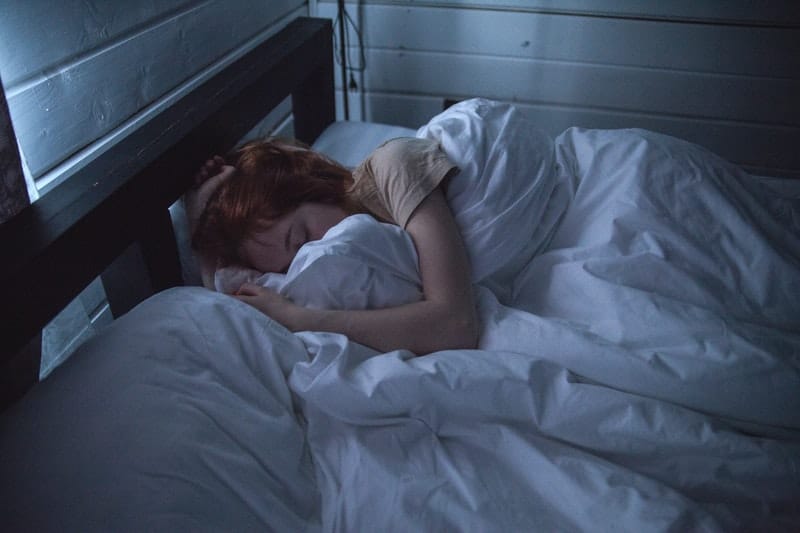 One of the first symptoms of philophobia is related to past traumas.
One of the first symptoms of philophobia is related to past traumas.
Philophobic people usually have a lot of emotional baggage from their past relationships which represents a heavy burden for them and doesn’t allow them to move on.
Something like this can happen if you’ve been emotionally injured or broken in the past, but your scars haven’t healed just yet.
Someone you cared for deeply crushed your heart which naturally left consequences on your mental health.
You aren’t actually afraid of love, but of a possible heartbreak
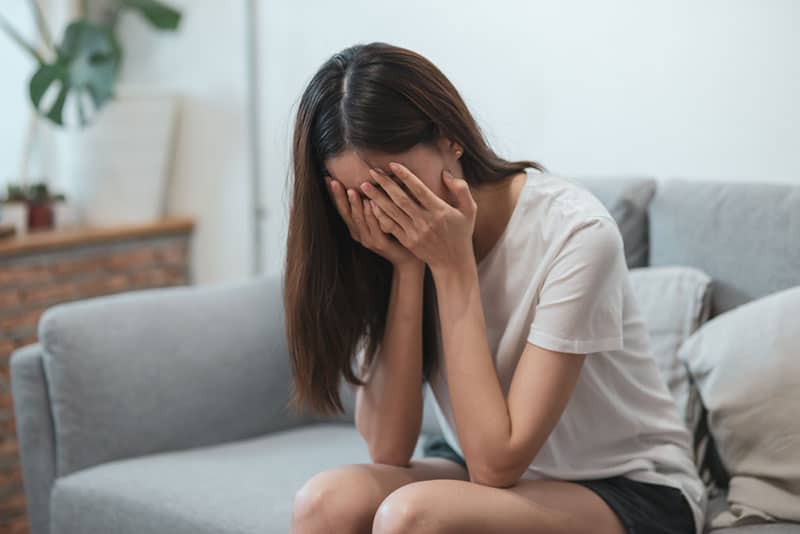 After everything you’ve been through, it is perfectly reasonable that you are completely disappointed when it comes to the opposite sex.
After everything you’ve been through, it is perfectly reasonable that you are completely disappointed when it comes to the opposite sex.
You think that everyone has the intention of hurting you and of crushing your vulnerable heart.
And that is something that scares you the most—having to go through that emotional pain once again.
You are positive that your wounded heart wouldn’t survive any more damage, and you are ready to do whatever it takes to prevent that from happening.
The fear of getting your heart broken paralyzes you to the point where you’ve subconsciously decided that the best way to protect it is to forget that you even have it.
And all of this can also scare your loved ones as well.
You are unable to open up to others
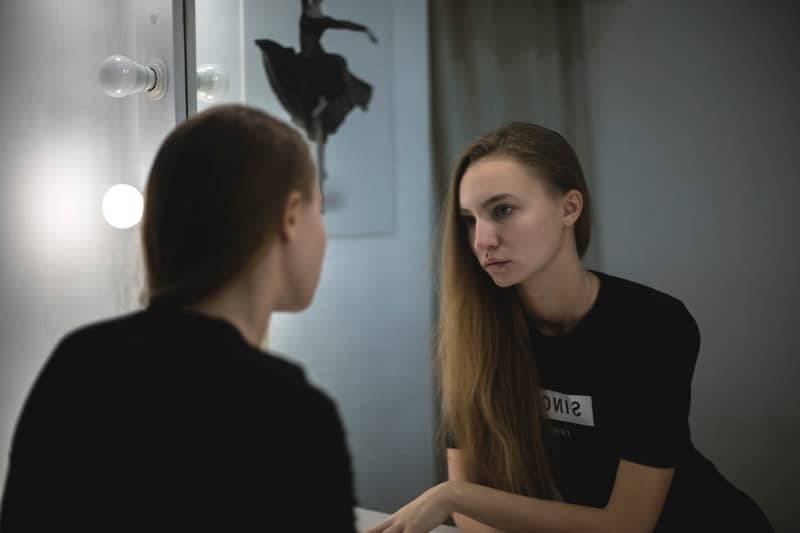 What actually scares you the most about falling in love is the emotional attachment love carries with itself.
What actually scares you the most about falling in love is the emotional attachment love carries with itself.
Opening up to another person on a deeper level and forming a meaningful connection and emotional bond is something you can’t imagine yourself doing.
However, this is not just the case with romantic relationships —you act similarly when it comes to most people in your life.
Don’t get me wrong—this doesn’t mean that you are an introvert or antisocial.
You may have a lot of friends, and you don’t mind hanging out with people—it’s just that you are rarely comfortable with showing your true self to the world.
You have trust issues
 If you are someone who’s been betrayed or backstabbed in the past by the ones closest to you, it is no wonder that you’ve stopped believing in people.
If you are someone who’s been betrayed or backstabbed in the past by the ones closest to you, it is no wonder that you’ve stopped believing in people.
You no longer have faith that everyone is essentially good, and consequently, you’ve become overly careful when it comes to romantic relationships.
One of the signs that you have this phobia is exactly these trust issues you are dealing with.
You simply think that everyone you meet will hurt you or take advantage of you in one way or another.
With time, you’ve learned not to rely on anyone. You’ve learned that you are the only person you can count on and that not trusting anyone is the only path toward avoiding disappointment and betrayal.
You value your single life too much
 Another sign that you suffer from the fear of falling in love is the fact that you value your single status more than anything.
Another sign that you suffer from the fear of falling in love is the fact that you value your single status more than anything.
Even though this is a great thing because being single beats being in a toxic relationship anytime, you’ve embraced it to the point where you can’t imagine sharing your life with someone else and to the point where you have completely given up on love.
Even though it is not always the easiest thing in the world, you’ve gotten used to living alone, without anyone’s help.
The last thing you want is to have to compromise with someone or make sacrifices for the sake of your relationship.
You have your own rhythm and habits you follow, and you aren’t ready to change them and have to adapt to someone else.
For you, the single life has become your comfort zone. It is something familiar to you, something you are used to, and a lifestyle you don’t even think of abandoning any time soon.
You feel caged when in a relationship
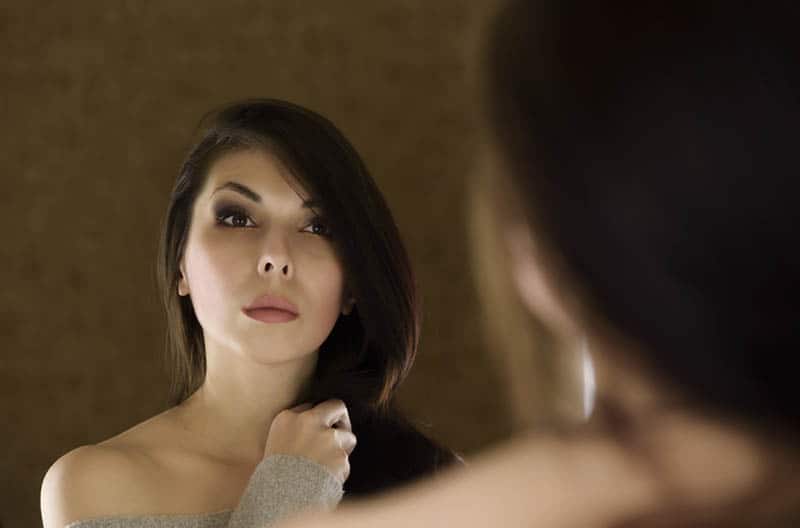 The idea of having to commit to just one person for the rest of your life scares the hell out of you because you simply can’t imagine yourself being tied to just one person for as long as you breathe.
The idea of having to commit to just one person for the rest of your life scares the hell out of you because you simply can’t imagine yourself being tied to just one person for as long as you breathe.
And not just that—every romantic relationship makes you feel caged and trapped.
Whenever you try being in a relationship or you just think about getting yourself involved in one, you have a panic attack.
You see a romantic relationship as the end of someone’s life—something that will completely deprive you of your individuality, something that will take away your freedom, and something that will change the essence of who you are.
The point is actually pretty simple: you are someone who likes to have complete control over your life, and emotions and falling in love could possibly take that control from you.
And just the idea of something like that happening suffocates you.
You only enjoy the physical part of a relationship
 Having philophobia doesn’t mean you don’t enjoy having sex and for most people, it has little to do with the physical parts of the relationship.
Having philophobia doesn’t mean you don’t enjoy having sex and for most people, it has little to do with the physical parts of the relationship.
The truth is that like everyone else, you need someone to kiss, cuddle, and sleep with.
It might sound strange, but you don’t have any problem whatsoever with showing affection in the bedroom.
What troubles you is how you are expected to behave after the physical part is over because the last thing you want to do is take this intimacy to the next level.
How Do You Fix Philophobia?
 Unfortunately, if you’re suffering from this phobia, your doctor won’t be able to diagnose this health condition because it is still not included in the Diagnostic and Statistical Manual of Mental Disorders (DSM).
Unfortunately, if you’re suffering from this phobia, your doctor won’t be able to diagnose this health condition because it is still not included in the Diagnostic and Statistical Manual of Mental Disorders (DSM).
However, just as any other phobia, philophobia can be treated with medications that will help ease the emotional baggage and physical symptoms and also with cognitive behavioral therapy.
Antidepressant drugs are used to alleviate any negative psychological and physical symptoms that stem from this phobia.
Yet, the main focus is on Cognitive Behavioral Therapy (CBT). CBT is considered the most effective treatment when it comes to fighting the enemy called philophobia and most other phobias as well.
The focus is on targeting the culprit, aka the cause, of philophobia and then converting a person’s negative thoughts into positive ones.
It is all about reducing anxiety toward certain romantic situations and establishing the basis for harmony and emotional well-being.
Soon, unreasonable fear converts into an understanding of it, and this understanding allows you to change your mindset.
By And Large
 In case you’ve just realized that you’re suffering from the fear of love (aka philophobia), the most important thing is to admit it out loud immediately, “I am a philophobic” and get it off your chest.
In case you’ve just realized that you’re suffering from the fear of love (aka philophobia), the most important thing is to admit it out loud immediately, “I am a philophobic” and get it off your chest.
Then, you need to understand that what you’re going through doesn’t make you who you are. Just keep in mind this powerful quote by Zig Zigler; “Always remember that your present situation is not your final destination. The best is yet to come.”
Your fear of love is just a side effect of a specific event or your mindset and it can be cured successfully.
All you need to do is take some time to process all of it and stay relaxed (no matter how ridiculous that sounds).
Remember that philophobia is just like any phobia out there, and you shouldn’t blame yourself for going through it.
Over time, you will discover the charms of falling in love naturally and without any fears. (I can promise you that).